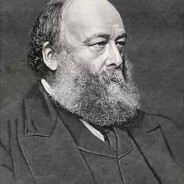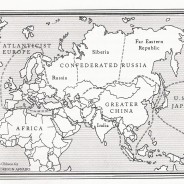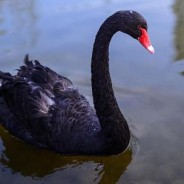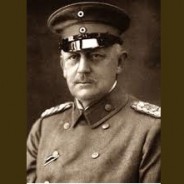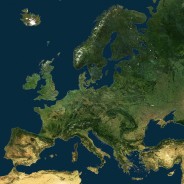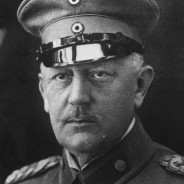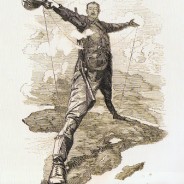
The New World Order

One Ring to rule them all
One Ring to find them
One Ring to bring them all
And in the darkness bind them,
In the Land of Mordor
Where the shadows lie
- J.R.R. Tolkien, “The Lord of the Rings”
“…To put it in a terminology that harkens back to the more brutal age of ancient empires, the three grand imperatives of imperial geostrategy are to prevent collusion and maintain security dependence among the vassals, to keep tributaries pliant and protected, and to keep the barbarians from coming together.”
– Zbigniew Brzezinski, The Grand Chessboard, (1997) p.40
“Universal peace will come only when [the] powers have divided the world between them….or if one nation becomes overwhelmingly superior to the rest….people who can look forward and grasp the essential factors which will govern the future grouping of the nations may be able to exert a profound influence on the political future of the world.”
– Arthur Balfour, British Prime Minister 1902-1905, in a letter (1909) to former US President Theodor Roosevelt
“If [Man] did not open himself to these tendencies to evil he would not succeed in developing consciously the impulse to receive from the universe the spirit which henceforth must fertilise the whole sphere of cultural life if it is not to perish.”
– Rudolf Steiner (Lecture V, From Symptom to Reality in Modern History, 1918)
In other words, without the profound challenge to the human spirit and soul that comes in the struggle with evil, Mankind in this modern age would not develop spiritually, and culture would wither. The New World Order is not to be hated, but its challenge is to be learned from and in the overcoming of it, humanity shall grow.
‘A’ Customs Union? ‘The’ Customs Union? British EU Delusions
This article was first published in The Present Age magazine Vol. 3 No. 12, March 2018 When I was teaching English in Japan many years ago, one of the many difficulties my students had with the English language was the difference between ‘a’ and ‘the’, which language teachers and linguists call the indefinite and definite article respectively. It was not surprising that the students had those difficulties, as there is no article at all in Japanese: in their own language the Japanese get by quite contentedly without...
read moreThe Cecils – Uncle and Nephew
This article was first published in the monthly magazine The Present Age September 2017, Vol. 3 No. 6 This is the third in a series of 5 articles which is rooted in the tortuous destiny between England and France, the two western countries which ‘pioneered’ modern nationalism, that view of life that has had such fateful consequences over the past 250 years. The modern western concept of the centralised, administrative state emerged in Britain and France 1300-1600 and there was a gradual identification of the British and French peoples with...
read moreThe Cecils – Father and Son
This article was first published in the monthly magazine The Present Age August 2017, Vol. 3 No. 5 The previous article to this one, in the July issue of “The Present Age” magazine, outlined how and why a certain mysterious and often tragic connection can be said to exist between the deeds of King Philip IV (‘the Fair’) of France (1285-1314) and those of King Henry VIII of England (1509-1547) via the destruction of the Knights Templar, the Hundred Years’ War between the two countries, the sons of Edward III of England, the...
read more1849 and 2017: Thoughts on ‘Globalisation’
This article was first published in New View magazine Issue 86 Jan. – Mar. 2018 It seems to this writer that there has been a certain similarity between the events of the years 1848 and 1849 on the one hand and those of 2016 and 2017 on the other. In 1848 and 2016 there was a widespread populist revolt across the western world against the existing Establishment which was severely shaken by the upsurge – various governments and prominent figures fell, including the Kings of France and Bavaria, and Chancellor Metternich of Austria, the...
read moreThe Year of the Black Swan – Brexit and Trump
This article was first published in New View magazine Issue 82, Jan. – Mar. 2017 The study of biography is an important and growing area of research in anthroposophy, related as it is to Rudolf Steiner’s work on the study of karma and reincarnation. As such, biographical work has a socially hygienic function, as it helps to promote the understanding of time (and timing) in one’s life and thus to restore meaning. And it is meaning that human beings crave above all, for we are beings who create meaning through the act of cognition,...
read moreMoltke, the West’s War on Russia & the ‘New Roman Empire’
This article was first published in The Present Age magazine Vol. 2, No. 3, June 2016 In his Reflections and Memories, written in Homburg in November 1914, Helmuth von Moltke makes quite clear that “Our failure to overwhelm France in the first attack was due to England’s fast intervention”(1). The British Foreign Secretary Sir Edward Grey kept British military plans and intentions to aid France in the event of war secret, even from his own fellow Cabinet members, until the secret came out in 1911. Later, in Berlin in the...
read moreEchoes of the 9th Century in Our Time
This article was first published in New View magazine Issue 81 Autumn 2016 “Matthew was an angel as a young child – sensitive, well-behaved, affectionate, often joyful, and often dreaming away on another plane. After turning nine, however, he soon changed into quite a different person. He was sometimes rude and critical, and often moody if not downright wretched…. Prior to age seven or eight, most children are sunny, smiling, exuberant, joyful beings – little angels, for the most part. Around the ninth birthday, however, a tinge of...
read moreHelmuth von Moltke, the West’s War on Russia and the ‘New Roman Empire’
This article was first published in The Present Age magazine Vol. 2 No.3, June 2016 In his Reflections and Memories, written in Homburg in November 1914, General Helmuth von Moltke, Chief of the German General Staff at the outbreak of war in 1914, makes quite clear that “Our failure to overwhelm France in the first attack was due to England’s fast intervention”(1). The British had been planning since 1906 to send their forces to France to collaborate with the French army in a great attack against Germany in the European war that all...
read moreThe Poppies of 2014 – Goodbye to All That?
A slightly shorter version of this article first appeared in New View Magazine #74 Jan – Mar 2015 And so we came to the end of 2014, the centenary year since the outbreak of the First World War, the catastrophic conflict which can be said to have opened the actual 20th century, which was a very short century and ended in 1989/90 with the termination of ‘the Soviet experiment’ and the Cold War, and with the reunification of Germany. In the first months of the year, the British Establishment quickly got off the mark and...
read moreRhodes, Russia and the “Islamic State”
This article first appeared in New View magazine Issue 73 Oct. – Dec. 2014 How do I go about making sense of what is happening in world events? When a scientist observes the natural world, he does so having first studied and familiarised himself with a number of fundamentals in his chosen field, and he seeks to understand the phenomena in the light of those fundamentals. If one is interested in history and current events from a spiritual scientific perspective, it is helpful to familiarise oneself with the fundamentals of understanding...
read more
